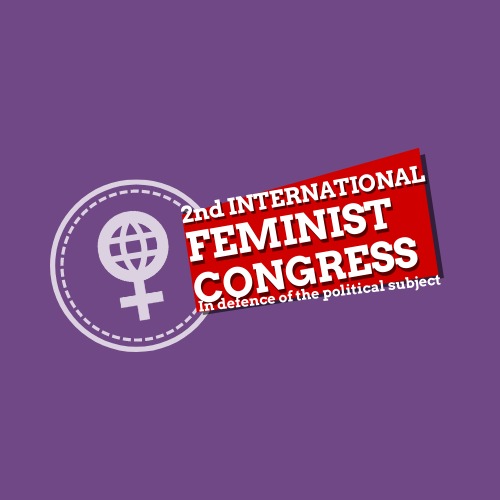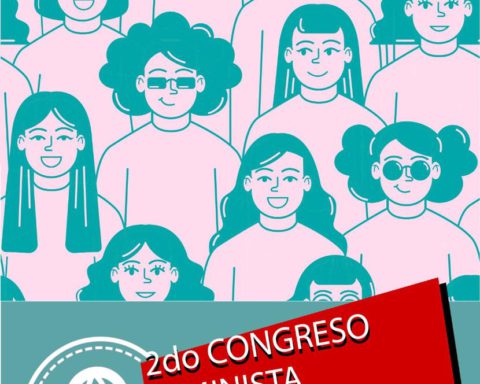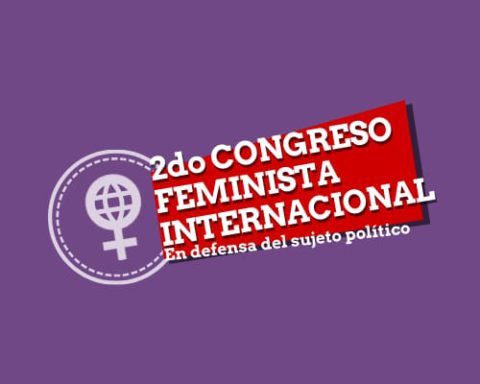The organizers of this second congress are the same people that planned the first International Abolitionist Congress in 2018. Back then, we did not realize, but the battle we are fighting for is way more vast than merely the abolition of prostitution. Eventually, it became clear that we cannot address that particular issue without taking into consideration the bigger perspective that addresses not only this problem, but also the war of the patriarchy against women as a whole, particularly when the patriarchy wears a mask that bears the appearance of progressivism. We came to the realization that it was time for us to enter the battle for feminism as a whole.
We realized that the feminist field, which has been growing vastly because of the fights against femicides, rapes and abortion, contained in itself a fatal weakness that explained many significant setbacks, from the acceptance of surrogacy to the cultural advance of prostitution. There had been, in a sense, a coup d’etat-like phenomenon in the center of the movement that displaced females from the command of their own movement. Thus, the key to this ideological battle now occurs perhaps not so much between feminism and the patriarchal society, but within feminism itself. We are in a battle for the recovery of the movement that women have been building for centuries which has been expropriated today.
Feminism is being destroyed by identity politics. In many parts of the world, queer feminism has already succeeded in displacing women from their central place on the movement. Their philosophy is that of subjectivism with a postmodern root that dilutes the borders of the movement and what being female is, thus allowing the entrance of diverse groups of people (like transwomen) with whom it is surely optimal to establish agreements and alliances, but it is just as important to realize that our interests and struggles are not identical. On the contrary, in many cases they are openly contradictory. Feminism then becomes the instrument and vehicle of different interests which are not those of women. A very clear example is the defense of surrogacy and another one is that of the so-called «gender-inclusive language» which erases women and, just like the patriarchy has been doing for centuries, reduces us to our body parts «vagina-bearers, menstruators». No less serious is the rupture between science and women: a movement whose starting point is the denial of objective reality, not only destroys all material foundation for the construction of «identities», but also makes any democratic discussion impossible. An open censorship is established against anyone who seeks to question the new religious dogma that preaches that everyone one is «whatever they want to be.»
We could keep discussing these topics, given the extension and prevalence they have internationally gained in the media and in the political scene. That is why we need a place to discuss these topics from a feminist perspective centered on women and also materialist and scientific. We cannot advance with the feminist agenda if we do not reach an agreement on these topics, which are extremely important for the movement. That is why to continue the process that we started in the First Abolitionist Congress, it is imperative that we recognize what was already implicit there and what we will fully deploy in this Second Congress. We invite all people interested in reflecting on these problems to spread this event and participate as a listener or speaker, proposing stands and panels and suggesting activities.
Date of the Congress:
May 15th and 16th 2020
Discussion topics:
Feminism and teaching: Challenges and difficulties
Feminism and media
Woman and sports performance
Women’s sexed rights: legislation and politics
Sexual and reproductive rights: exploitation and expropriation (surrogacy, assisted reproduction technology, prostitution, sex-trafficking, egg donation)
The political subject: a) Feminist theory: philosophical foundations. Identity politics. Language as a battlefield. b) Feminist practice: political action and alliances.
Childhood and adolescence: Identities/orientations. The problem of gender.
Prostitution, gender and pornography: the abolitionist task.
Psychology and psychiatry: the issue of identities. Do sexed brains exist? On what does the construction of a psychological identity depends? The problem of dysphoria.
Activities:
Discussion panels
Book launches.
Artistic activities
Conditions of participation
Signing up at the Congress’ page
Sending the organisers a summary of the proposal
Proposal submissions:
Stand suggestions due on March 1st 2020
Book launches due on March 30th 2020
Artistic activities due on March 30th 2020
Contact: segundocongresofeminista1@gmail.com



